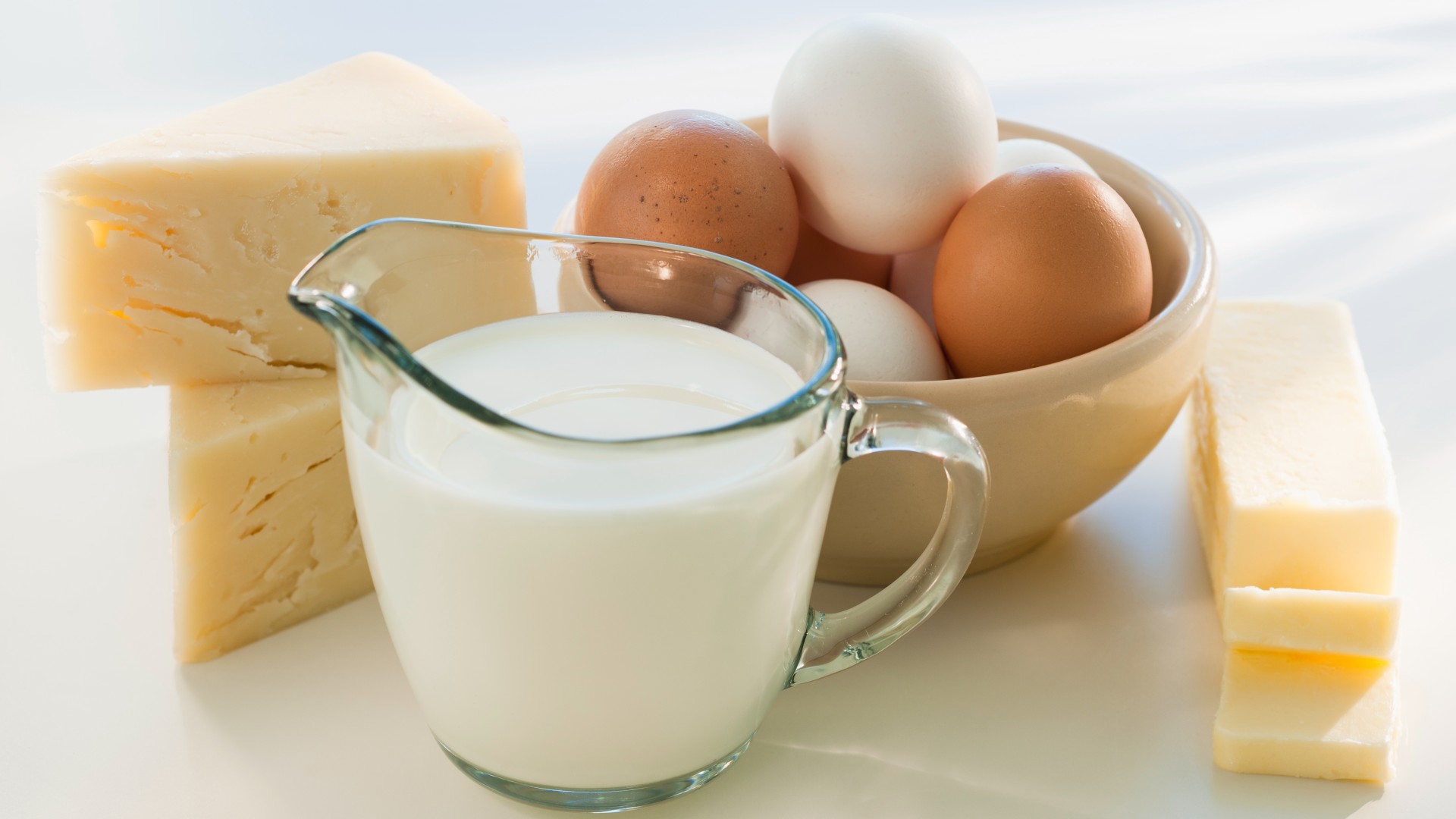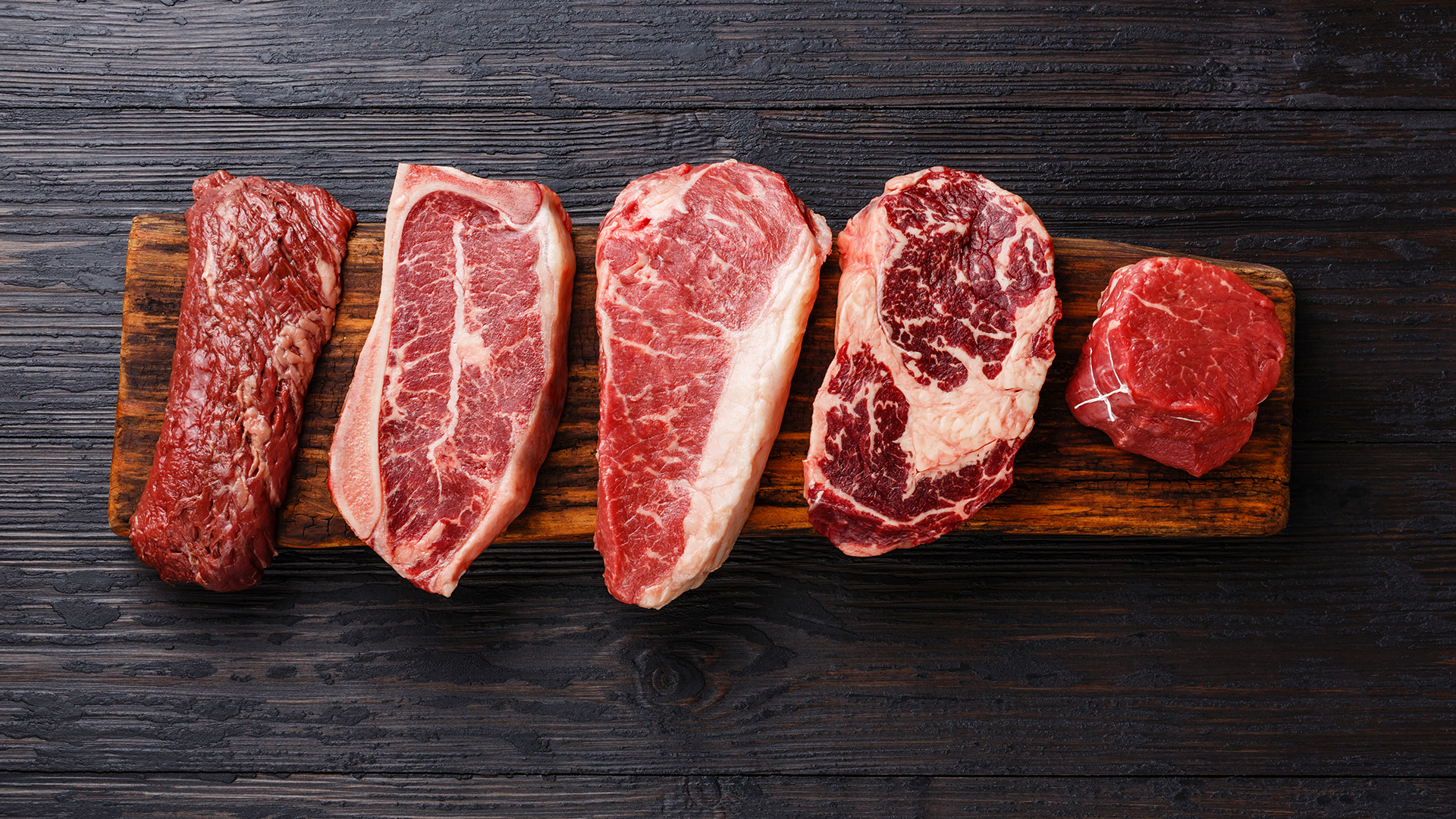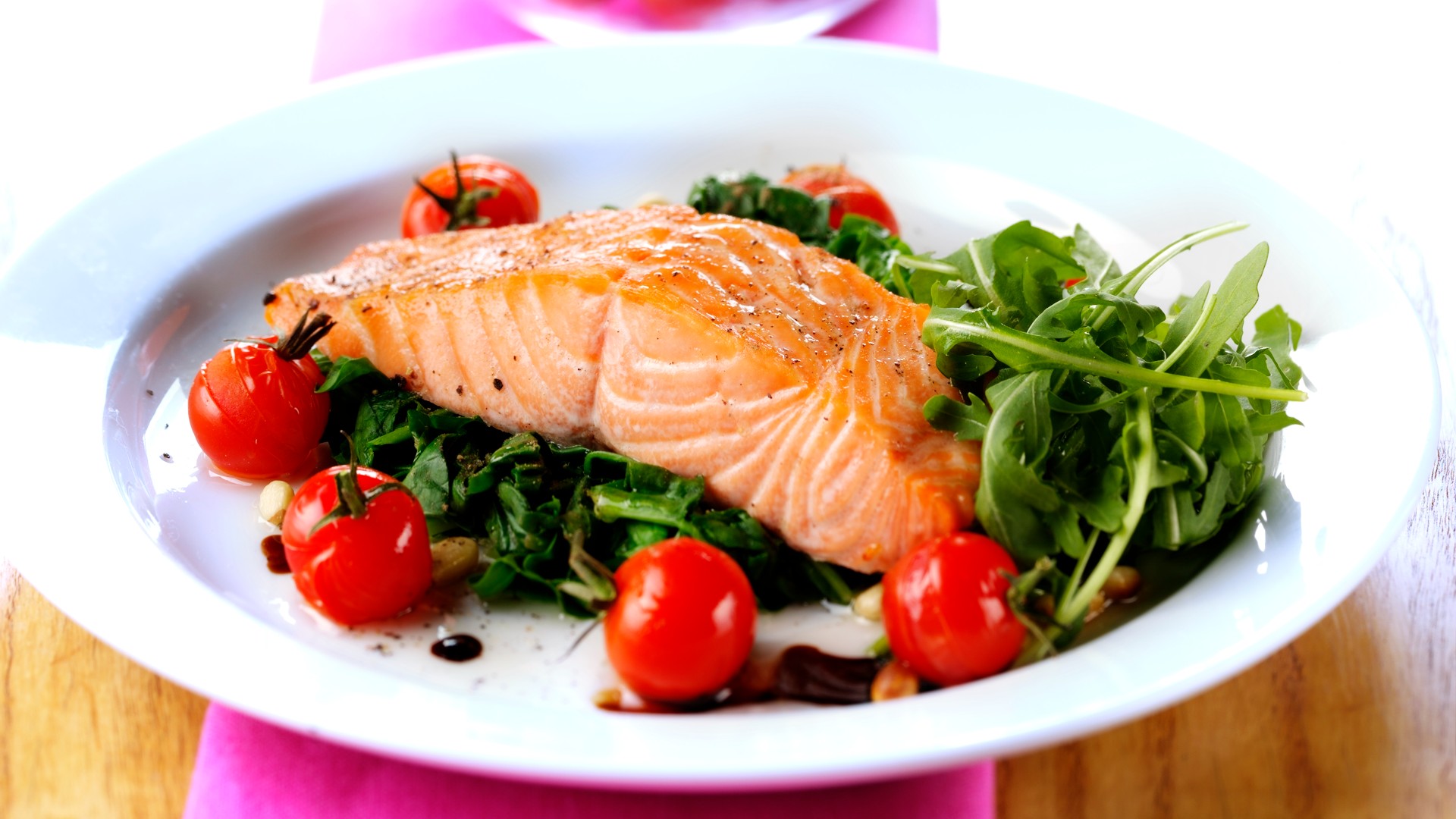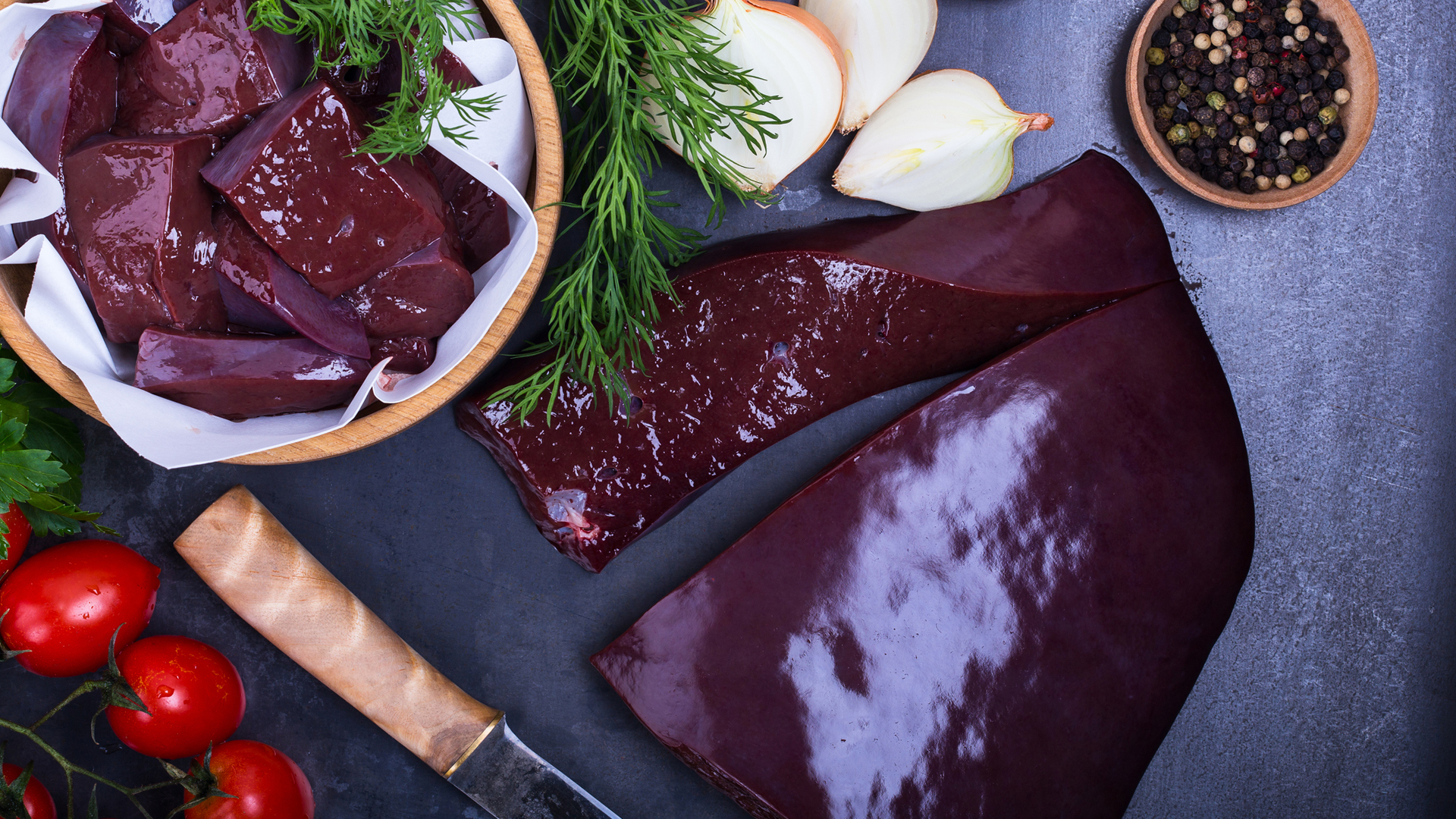Seven sources of vitamin B12 to boost energy and reduce fatigue
Ensure you’re getting enough of this essential nutrient with these sources of vitamin B12

Get the world’s most fascinating discoveries delivered straight to your inbox.
You are now subscribed
Your newsletter sign-up was successful
Want to add more newsletters?

Delivered Daily
Daily Newsletter
Sign up for the latest discoveries, groundbreaking research and fascinating breakthroughs that impact you and the wider world direct to your inbox.

Once a week
Life's Little Mysteries
Feed your curiosity with an exclusive mystery every week, solved with science and delivered direct to your inbox before it's seen anywhere else.

Once a week
How It Works
Sign up to our free science & technology newsletter for your weekly fix of fascinating articles, quick quizzes, amazing images, and more

Delivered daily
Space.com Newsletter
Breaking space news, the latest updates on rocket launches, skywatching events and more!

Once a month
Watch This Space
Sign up to our monthly entertainment newsletter to keep up with all our coverage of the latest sci-fi and space movies, tv shows, games and books.

Once a week
Night Sky This Week
Discover this week's must-see night sky events, moon phases, and stunning astrophotos. Sign up for our skywatching newsletter and explore the universe with us!
Join the club
Get full access to premium articles, exclusive features and a growing list of member rewards.
Vitamin B12 is an essential vitamin that your body can’t make on its own and because it plays a crucial role in helping the cells to protect the nerves, knowing the best sources of vitamin B12 that you can include in your diet is vital for your health and wellbeing.
Vitamin B12 is one of eight B-vitamins. These vitamins have a number of jobs, however vitamin B12 has a few specific roles. Specialist registered dietitian Nichola Ludlam-Raine, explains that vitamin B12 helps our body to release energy from food, keeps the nervous system healthy and helps to make red blood cells, which transport oxygen around the body.
According to the National Institue of Health, symptoms of vitamin B12 deficiency can include a pale yellow tinge to your skin, a sore and red tongue, irritability, depression, disturbed vision, mouth ulcers and pins and needles. Ludlam-Raine says that some people will be more at risk of vitamin B12 deficiency.
“Those who have had part or all of their stomach removed may be at risk of B12 deficiency, for example, people following bariatric surgery such as gastric bypass or sleeve gastrectomy,” she says. “This is because the stomach produces something called the 'intrinsic factor' which helps you to absorb it. Those who follow a vegan or vegetarian diet may also be deficient in B12, as it is naturally found in meats and fish, but also dairy products and eggs too.”
Although those at risk need to ensure they are getting enough vitamin B12, everyone needs to include sources of vitamin B12 in their diet to keep levels up. Because B-vitamins are water soluble, the National Institute for Health has set a daily Nutrient Reference Value (NRV) of 2.4 mcg for men and women who are not pregnant or breastfeeding.
Here, we delve deep into the sources of vitamin B12, how much B12 they provide and the other benefits we may reap from each source.
1. Beef
A beef steak packs in plenty of vitamin B12, with a 190 g steak providing around 11.2 mcg, which is four times more than the NRV. Beef also packs in other nutrients which are needed for good health.
Get the world’s most fascinating discoveries delivered straight to your inbox.
Not only is beef a good source of protein, needed for bone, muscle and general cell health, but it also contains the minerals iron, zinc and selenium as well as other B vitamins.
Iron is important in making red blood cells, which carry oxygen around the body, whilst zinc helps our body make new cells and is important for wound healing. Selenium is needed for a healthy immune system.

2. Nutritional yeast
Available in flake or powder form, nutritional yeast is often fortified with vitamin B12, making it a great source of B12 for everyone, but especially for those following a vegan diet or other largely plant-based diet who need non-animal based sources.
It’s ideal as a thickener in soups, sprinkled on pasta, salads and risottos or even added into smoothies. A 5 g serving of fortified nutritional yeast contains 2.2 mcg of vitamin B12, which comes close to the daily NRV. Fortified nutritional yeast also contains other B-vitamins as well as the minerals iron and zinc.
3. Milk
It’s not just milk that provides vitamin B12; other dairy foods do too such as cheese and yogurt. A cup of full fat milk contains 1.1 mcg of vitamin B12, which is just under half of the daily NRV.
Helen Bond, registered dietician and spokesperson for the British Dietetic Association says that dairy foods, such as milk, yogurt and cheese also contain other nutrients. This includes calcium, which is “important for the maintenance of healthy bones and teeth”.
“Calcium is also useful for muscle function and blood clotting,” she says. “The calcium in dairy products is sometimes more easily absorbed and used by the body than perhaps in other foods.”
Bond adds that iodine is another nutrient found in dairy foods, helpful in supporting a healthy metabolism, as well as contributing to the health of our skin and nervous system.

4. Eggs
The humble egg isn’t just a good source of protein, it’s one of the key sources of vitamin B12 too.
In fact, one egg contains 1.4 mcg of vitamin B12, which is around half of the NRV of vitamin B12. So a couple of eggs for breakfast would help provide your daily recommended amount of vitamin B12.
Eggs are also useful sources of other vitamins and minerals including vitamin D — for healthy bones, teeth and muscles — selenium, and choline; a mineral which contributes to normal fat metabolism and liver function.
5. Salmon

This oily fish is one of the best sources of vitamin B12 with 3.5 oz (100 g) packing in 4.15 mcg. This isn’t far off double the NRV of daily B12.
Bond says that other fish also contain vitamin B12 such as kippers, sardines, mackerel, seabass, haddock and plaice.
“Salmon is a type of oily fish and one of the big benefits of oily fish is that it also contains long chain omega-3 fatty acids, which are really beneficial in terms of brain and heart health,” adds Bond, who says that fish is also a good source of protein and healthy fats.
6. Fortified foods
Various foods are fortified with vitamin B12, such as cereals, spreads and the best milk alternatives. This can be a useful way for meat eaters and also vegans and vegetarians to keep on top of their B12 intake.
Research published in the American Journal of Clinical Nutrition has shown that 1 daily cup of fortified cereal (fortified with three B vitamins, including B12) significantly increased the concentration of B vitamins in the body of participants over the course of 14 weeks.
Fortified foods often provide other nutrients too such as iron, vitamin D and vitamin C, so other health benefits can be reaped.
7. Organ meat
They might not be to everyone’s taste but organ meats, such as liver and kidneys, are one of the best sources of vitamin B12. In fact, just 3.5 oz (100 g) of lamb’s liver contains a staggering 85.7 mcg of vitamin B12 — that’s more than 34 times the NRV of B12.
Organ meats contain other nutrients too, including iron, which Bond explains is good for reducing tiredness and fatigue.
“Organ meats also contain vitamin A, which is important for our eyesight and vision.”
A word of warning though: it’s recommended that pregnant women avoid liver foods such as live patê as too much vitamin A can be detrimental to a fetus.
If you aren’t a fan of the taste of organ meats, there are some simple ways to disguise the taste. You can add a bit to chilis, mixed in with mince, or even use in a curry with a thick sauce.

This article is for informational purposes only and is not meant to offer medical advice.
Lucy is a freelance journalist specializing in health and fitness. She was previously the Health and Fitness Editor across various women's magazines, including Woman&Home, Woman and Woman’s Own as well as Editor of Feel Good You. She has also previously written for titles including Now, Look, Cosmopolitan, GQ, Red and The Sun. She lives and breathes all things fitness; working out every morning with a mix of running, weights, boxing and long walks. Lucy is a Level 3 personal trainer and teaches classes at various studios. Plus, she's pre- and post-natal trained.
 Live Science Plus
Live Science Plus











